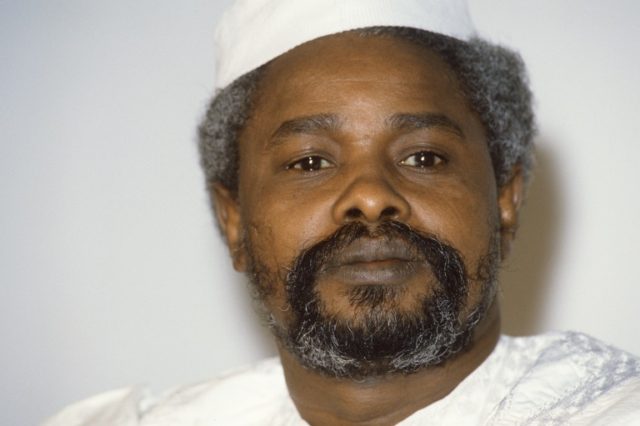Dakar (AFP) – Former Chadian dictator Hissene Habre, sentenced to life in May for crimes against humanity, was ordered Friday to pay compensation to thousands of his victims of up to 30,000 euros ($33,000) each.
A special African Union court ordered financial redress for those who suffered rape, arbitrary detention and imprisonment during his abusive 1982-1990 rule, as well as for victims’ relatives.
Habre was sentenced to life in jail on May 30 by the court set up to try him a quarter century after he fled to Senegal following his 1990 ouster by Chad’s current president Idriss Deby.
The landmark conviction was seen by rights campaigners as a victory in the fights against impunity.
It set a global precedent as the first time a country had prosecuted the former leader of another nation for rights abuses. It was also the first such trial by the African Union.
Friday’s financial compensation order was issued by the court’s presiding judge, Burkina Faso’s Gberdao Gustave Kam, who did not detail how many people would win redress.
But the main lawyer for victims of Habre’s rule, Jacqueline Moudeina, told journalists that 4,733 civil plaintiffs were involved in the case.
Of those, 1,625 were direct victims of regime brutality, having been jailed without trial or taken prisoner of war. Around a dozen women could claim for rape or sexual abuse, she said.
The court ordered Habre “to pay each of the victims of rape and sexual slavery the sum of 20 million CFA francs (30,490 euros), to each victim of arbitrary detention, or prisoners of war … 15 million CFA francs; and to indirect victims, 10 million,” Kam said.
One of the civil plaintiffs, jeweller Abdourahmane Gueye who says he was jailed for several months on charges of spying, said the compensation was far too low.
– ‘Africa’s Pinochet’ –
“I lost more than 30 million,” he said.
“Money will never bring me back my friends,” said former detainee Souleymane Guengueng. “But it helps to heal the wounds, to support those who became poor and it shows we have rights that must be recognised.”
The 73-year-old former leader, who refused to recognise the court throughout the nine-month trial, did not attend the hearing. His court-appointed lawyers said they would appeal.
Often known as “Africa’s Pinochet”, Habre was accused of the deaths of 40,000 people, charges he denied.
Witnesses recounted the horror of life in Chad’s prisons, describing in graphic detail abusive and often deadly punishments inflicted by Habre’s feared secret police, the Documentation and Security Directorate (DDS).
Victims were subject to electric shocks and waterboarding while some had gas sprayed in their eyes or spice rubbed into their genitals, the court heard.
Habre’s defence team unsuccessfully sought to cast doubt on the prosecution’s argument that their client was an all-knowing, all-powerful head of the DDS, suggesting he may have been unaware of abuses on the ground.
For more than 20 years, the former dictator lived freely in an upmarket Dakar suburb with his wife and children.
Reed Brody, a lawyer for Human Rights Watch who spent 15 years working with victims to bring Habre to justice, said at the time that the conviction was a warning.
“The days when tyrants could brutalise their people, pillage their treasury and escape abroad to a life of luxury are coming to an end,” Reed said in a statement.

COMMENTS
Please let us know if you're having issues with commenting.